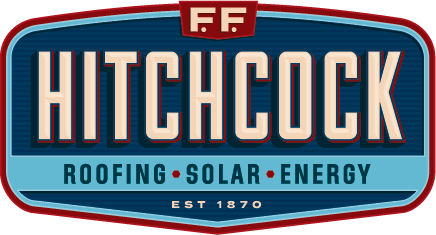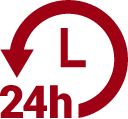One large part of ensuring the safety and health of your Cheshire, CT home is maintaining an acceptably high indoor air quality (IAQ). Unfortunately, your IAQ is constantly diminished by both the actions and activities of building residents and the off-gassing of building materials. Although HVAC air filters provide limited IAQ benefits, they don’t address all allergens, pathogens, and chemical contaminants. Read on to find out how your air filter affects your IAQ and how you can improve its impact.
Understanding the Real Role of HVAC Air Filters
All heating and cooling equipment comes with standard air filters pre-installed. HVAC equipment manufacturers insert these components to keep the interior of their products protected from airborne debris. Standard HVAC air filters sieve out relatively large-sized particulates, including pet hairs, human hairs, carpet and textile fibers, and dust.
Without an air filter installed, your air conditioner or heat pump would quickly ice over or overheat. Buildups of common indoor allergens like dirt and lint affect the heat transfer process in AC and heat pump evaporator coils. This same debris can also coat furnace thermocouples and heat sensors, block furnace intake valves, and affect many other sensitive components that could keep your heater from turning on.
Air filters also promote even and consistent airflow and air delivery. The same lint-like buildups that form on HVAC air filters will eventually develop behind your air vents, in your ducting, and in other areas where they’ll inhibit the movement of air.
Serious airflow problems can occur when HVAC systems are run with dirty air filters installed. As filter buildups grow thicker and exceed the capacity of these components, heaters and air conditioners have an increasingly hard time drawing air through them.
How Your Air Filter Affects Your Indoor Humidity
Among the first and most noticeable signs of a dirty air filter is decreased indoor comfort. When filter debris obstructs airflow, heaters and ACs cannot effectively regulate temperature or humidity. Your living space could quickly become muggy, clammy, or downright oppressive. Dirty filters and the increased humidity they cause can also set the stage for mold and mildew formation. If left unchecked, these pervasive fungal growths can have a devastating and lasting impact on your IAQ.
Filter Problems That Diminish Indoor Air Quality
Dirty HVAC air filters are among the most common causes of heater and air conditioner breakdowns. Not only do dirty filters inhibit airflow and trigger rises in humidity, but they also release large clumps of collected debris as they become overwhelmed. When this occurs, even as these units are extracting allergens and contaminants, they’re also simultaneously releasing them.
In addition to dirty filters there are also:
- Incorrectly installed filters
- Missing HVAC air filters
- Improperly sized filters
- Filters with insufficient ratings
Although heaters, heat pumps, and air conditioners come with standard filters pre-installed, IAQ concerns that are specific to your neighborhood, household, or home could necessitate the use of higher-rated options with greater filtration capabilities.
Tips to Avoid Common Filter Problems
If you’ve never replaced your HVAC air filter before, ask for guidance during your next heater or AC tune-up service. We perform filter changes during annual maintenance visits. We can show you the correct size and orientation for your filter. We can also assist you in making any necessary upgrades. You can find additional tips on changing, inspecting, and upgrading these components by reading your furnace or AC manual or visiting your HVAC equipment manufacturer’s website.
MERV Ratings and How They Affect Your IAQ
All of the HVAC air filters manufactured and sold in North America receive maximum efficiency reporting value (MERV) ratings. MERV ratings range from one to 20. Standard HVAC air filters have MERV ratings of just six to eight, and most residential HVAC systems can only accommodate air filters with MERV ratings of 13 or lower without requiring special modifications.
Standard air filters collect dirt, dust, pollen, and other common, large-sized particulates. Filters with higher ratings can pick up dust mites and other micro-fine debris. You might need a higher-rated filter if you live on a lot that isn’t landscaped, near a busy freeway, or close to an active construction site.
Choosing an air filter with a high MERV rating can also be beneficial for building residents with chronic respiratory ailments, terminal illnesses, or compromised immunity. High-rated air filters have greater surface areas, tighter mesh, and a more expansive range of allergens and contaminants that they can reliably extract.
What Your HVAC Air Filter Cannot Do
Even with an upgraded HVAC air filter installed, there are a lot of airborne contaminants that your HVAC system cannot remove. These include chemical contaminants that are constantly off-gassed by building materials like interior paint, flooring, floor solvents and adhesives, and unsealed particle board. These gaseous contaminants flow right through HVAC air filters.
Standard and upgraded filters cannot extract the chemicals released when discharging cans of room freshening sprays or surface cleaners, burning candles, smoking cigarettes, or using plug-in air fresheners. They don’t pick up the VOCs that are produced when cooking food indoors or the germs, viruses, and other pathogens that are found in the micro-fine aerosols of a sneeze.
The Importance of Addressing Fixable IAQ Concerns
Although air filters do extract a fair percentage of allergens and contaminants from homes, they aren’t considered a worthy substitute for proactive IAQ measures that address household and building-specific IAQ concerns. More importantly, they cannot offset the effects of poor maintenance and delayed repairs. For instance, if you have a slow or hidden leak in your crawlspaces or behind your drywall, you can’t rely on an air filter to rid your air of the resulting mold. If your sump pump has a loose, broken, or poorly fitted cap, an air filter won’t lower the amount of radon that’s present. To both raise and protect your IAQ, you must identify and resolve ongoing, fixable IAQ concerns like these.
What to Do About Everything Else
If you have static IAQ concerns that exceed the limitations of standard air filters, choosing filters with higher MERV ratings is an inexpensive strategy that could help. However, it’s far more effective to have a professional IAQ assessment performed and to use the resulting data to find the right integrated IAQ accessories.
IAQ assessments identify the exact allergens, contaminants, and pathogens that are floating through homes. They also list the concentrations of each. Based on the resulting IAQ reports, HVAC technicians can help homeowners choose between whole-house air purifiers, air scrubbers, media filters, humidifiers, dehumidifiers, and UV sanitizing lights.
Installed in or attached to HVAC ducting, integrated IAQ accessories work in tandem with air filters to keep both building residents and HVAC equipment protected. Some of the top options in IAQ accessories can reliably extract or deactivate gaseous contaminants, mold, and many bacteria, viruses, and other germs.
HVAC Air Filter Maintenance Tips
To ensure consistently optimal performance from your HVAC air filter, you should inspect this component monthly and change it every 30 to 90 days. You can inspect your filter by taking it out and holding it up to the overhead light. If light can still pass through a filter’s mesh, air can too.
We offer outstanding air conditioning, heating, plumbing, and energy conservation services. Residents of Cheshire, CT can also turn to us for cutting-edge indoor air quality solutions. If you have pressing IAQ concerns or need help with your ongoing air filter maintenance, get in touch with us at F.F. Hitchcock Plumbing, Heating & Cooling today.








